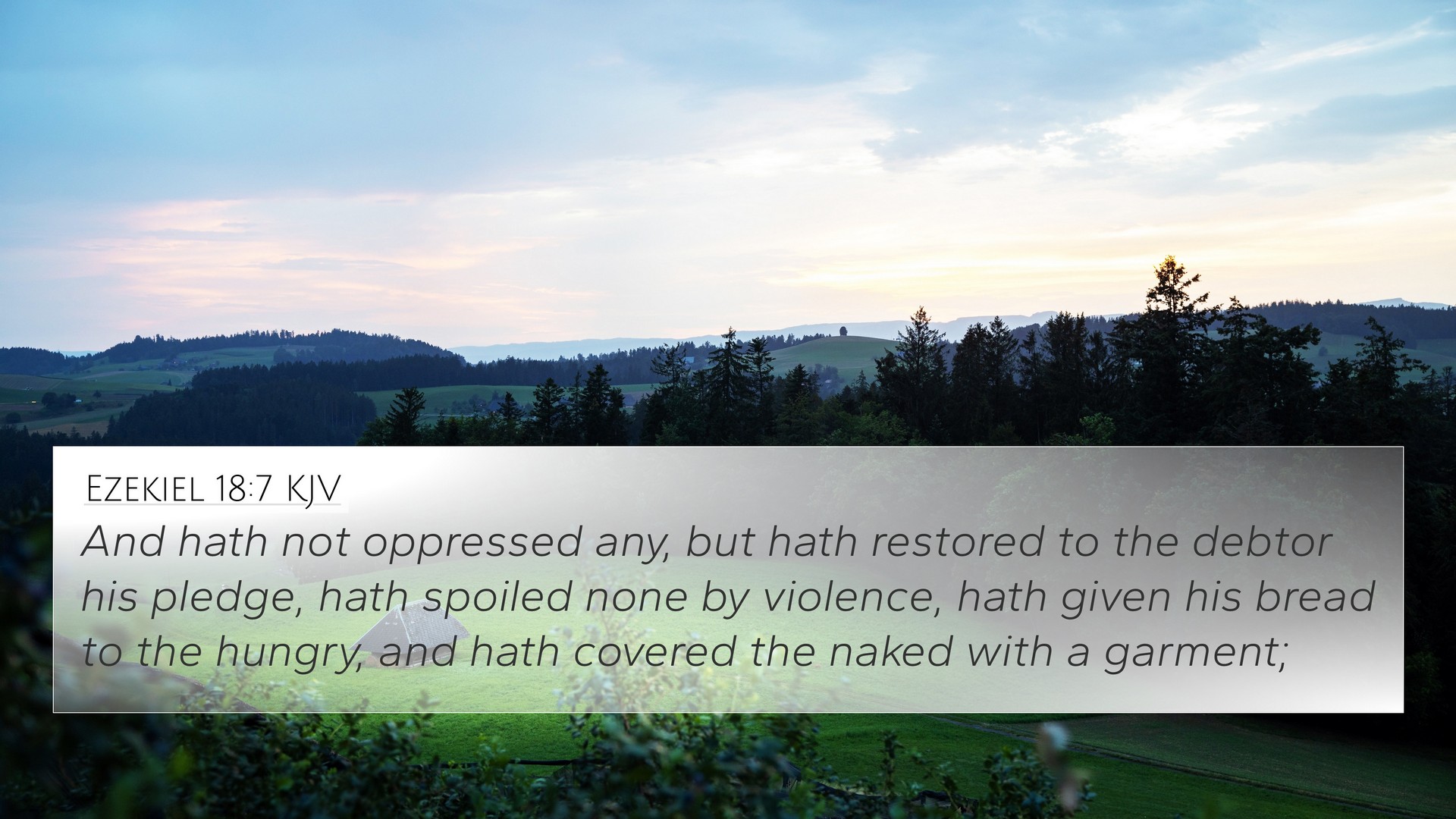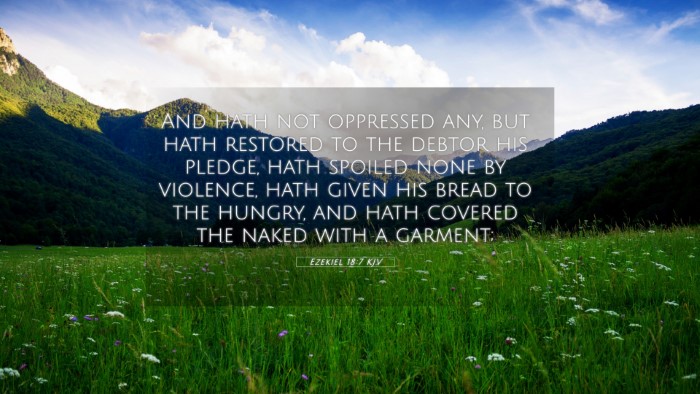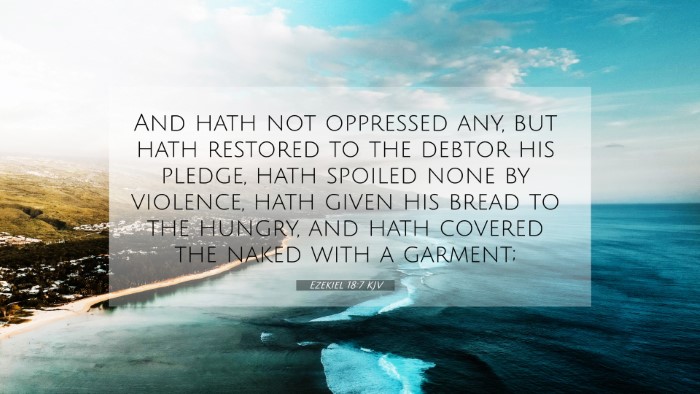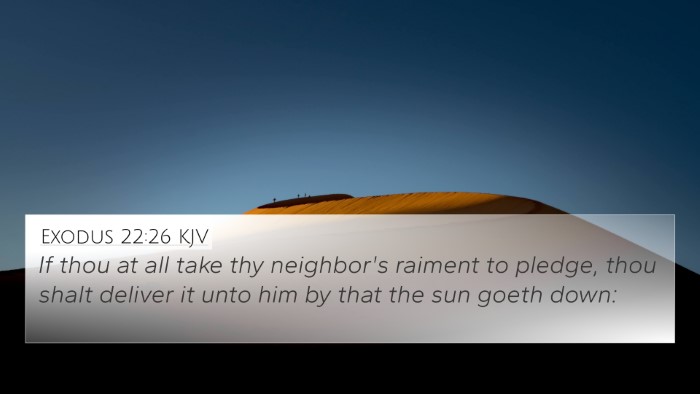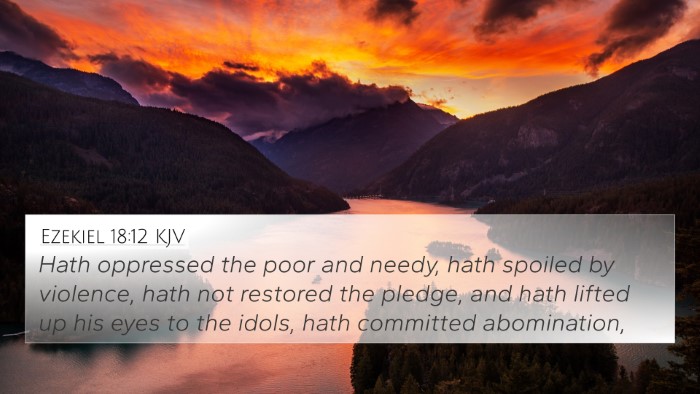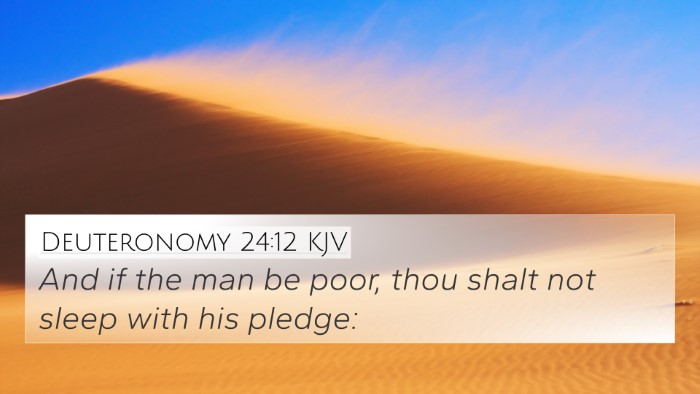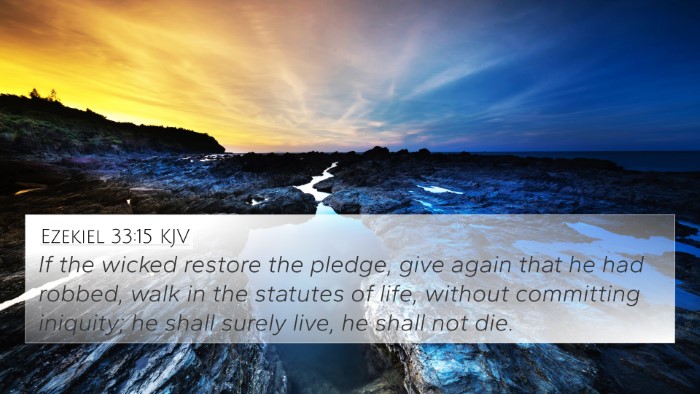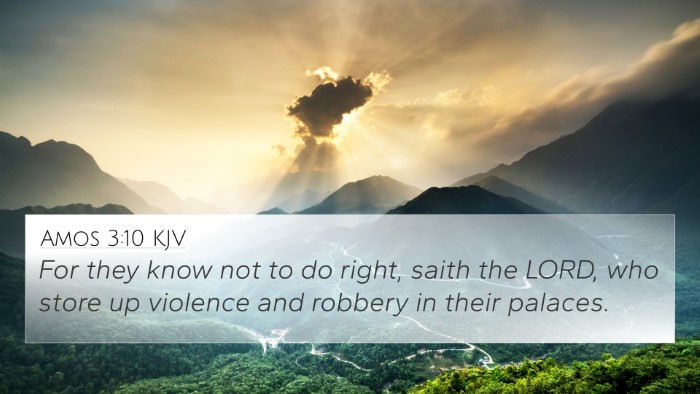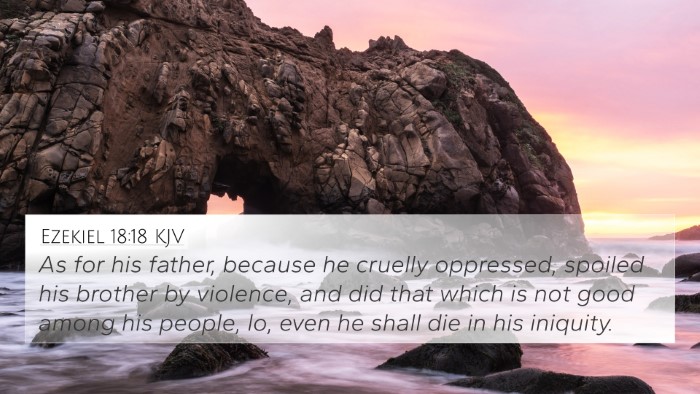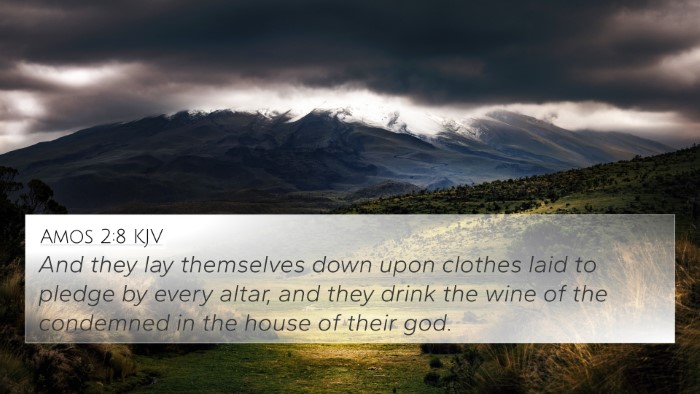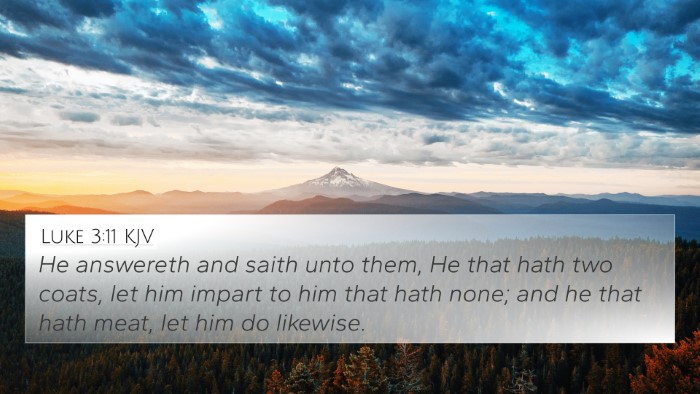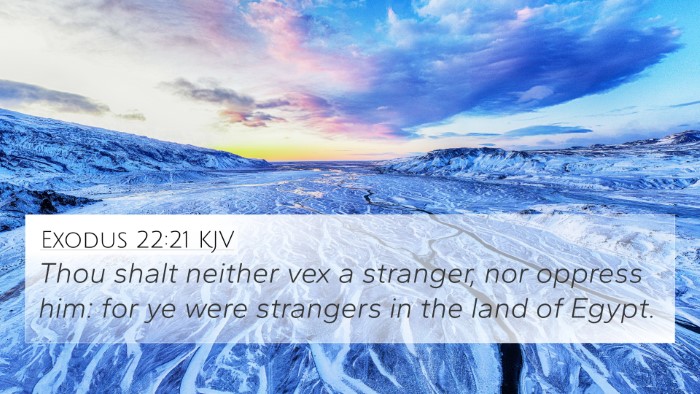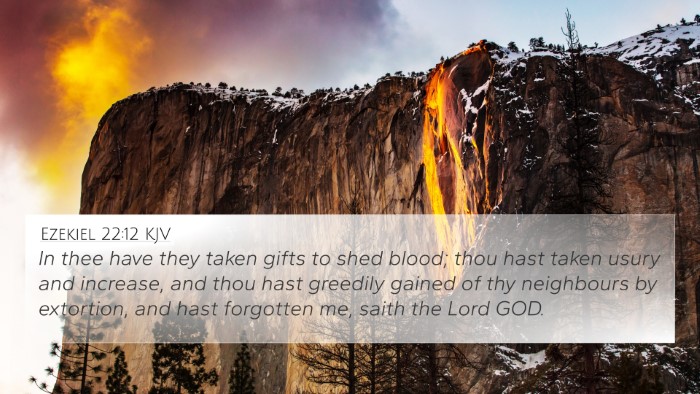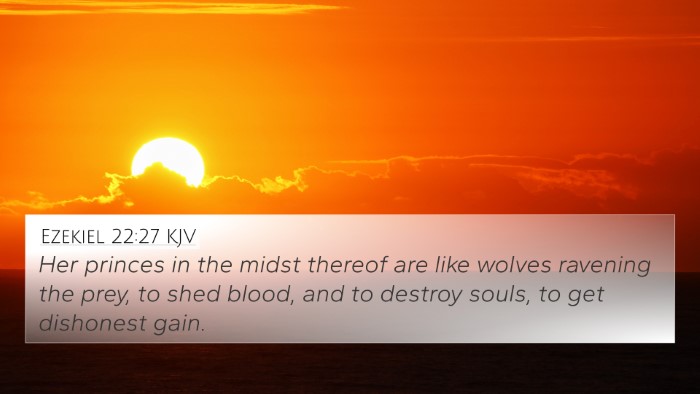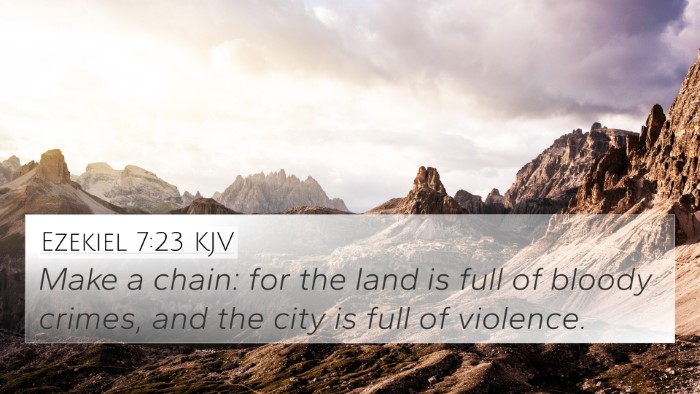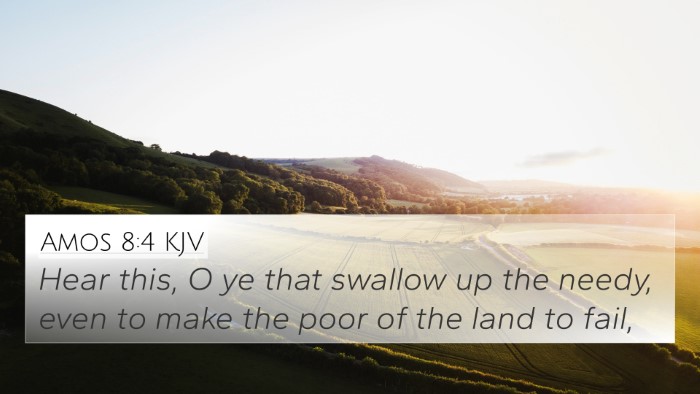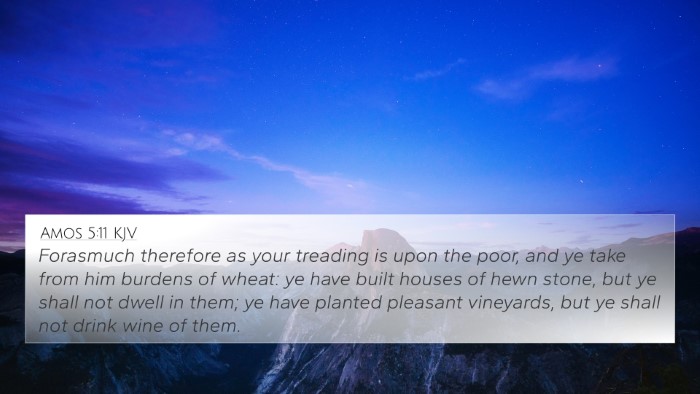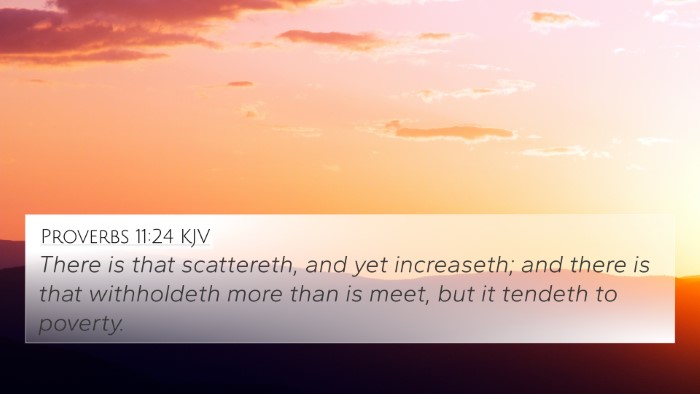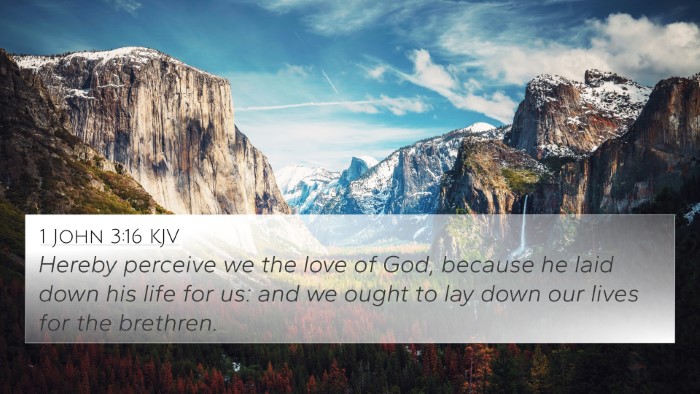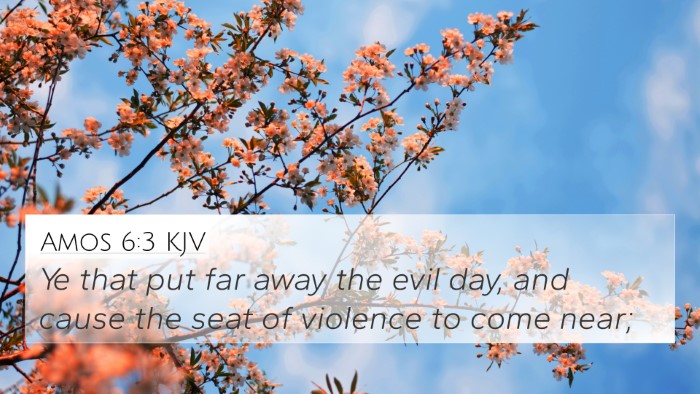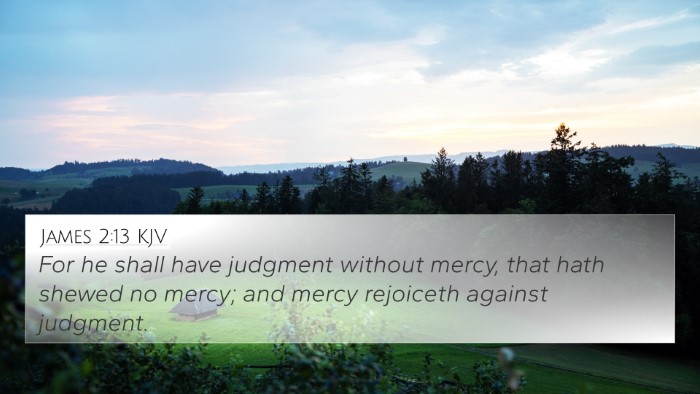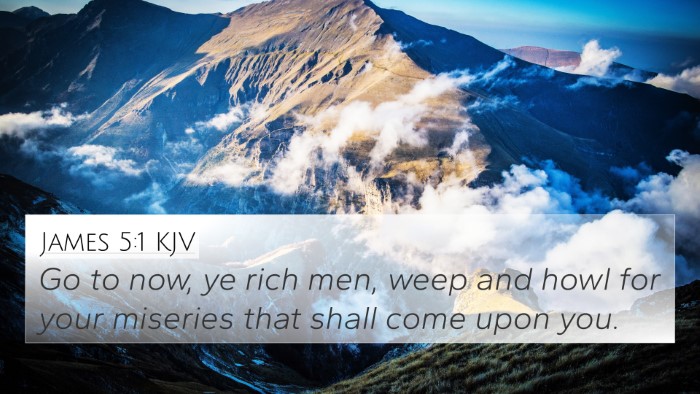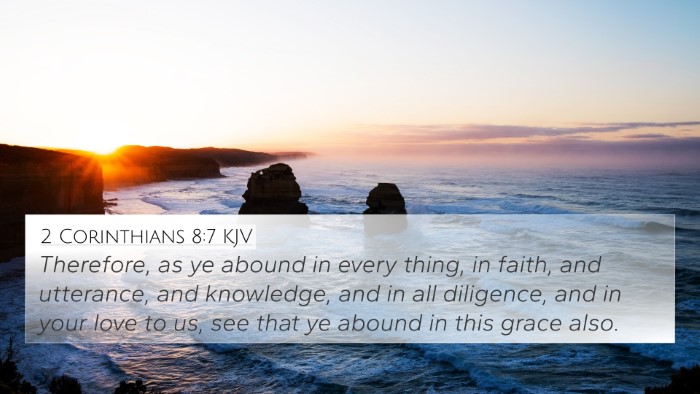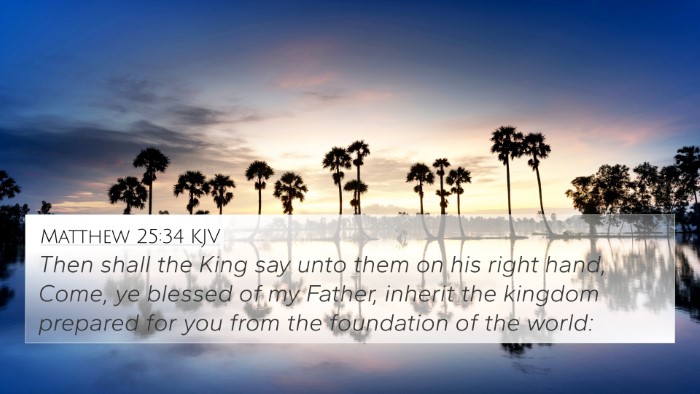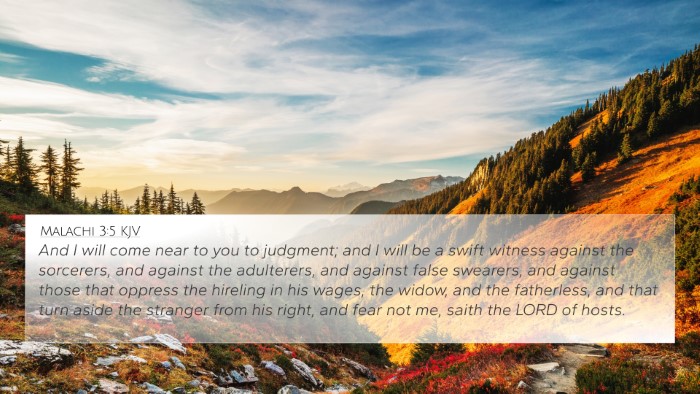Ezekiel 18:7 - Summary and Meaning
Bible Verse: Ezekiel 18:7
Verse: "And hath not oppressed any, but hath restored to the debtor his pledge, hath spoiled none by violence, hath given his bread to the hungry, and hath covered the naked with a garment."
Understanding Ezekiel 18:7
This verse is part of a passage where God, through the prophet Ezekiel, addresses issues of personal responsibility and righteous behavior. It emphasizes the qualities of a just man who lives according to God’s commandments, particularly focusing on moral integrity and compassion towards others.
Key Themes in Ezekiel 18:7
- Justice and Integrity: The verse highlights the importance of fairness, encouraging people to treat others with respect and to avoid oppressing the vulnerable.
- Restoration: The act of returning a debtor's pledge signifies a commitment to restoring what rightfully belongs to others.
- Generosity: By giving bread to the hungry and clothing to the naked, the verse underscores the necessity of providing for those in need as an expression of true righteousness.
- Moral Conduct: The avoidance of violence is a crucial aspect of living a life that pleases God and aligns with His will.
Commentary Insights
Matthew Henry: Matthew Henry emphasizes that this verse outlines the behaviors that reflect God's character. The just man, as described here, is marked by his integrity and kindness, serving as a reflection of God’s covenant stipulations.
Albert Barnes: Barnes elaborates on the listed actions in the verse as principles of conduct that should be maintained by believers. He points out how these traits not only preserve social justice but also reflect one's relationship with God.
Adam Clarke: Clarke notes the significance of each action mentioned, interpreting it as a model for righteous living. He particularly emphasizes the injunction to care for the needy and never to exploit others, indicating that these commandments form the basis of a life well-pleasing to the Lord.
Bible Verse Cross-References
- Proverbs 19:17: "He who is generous to the poor lends to the Lord, and he will repay him for his good deed."
- Matthew 25:35: "For I was hungry, and you gave me food, I was thirsty, and you gave me drink..."
- Luke 3:11: "And he answered and said unto them, He that hath two coats, let him impart to him that hath none..."
- James 1:27: "Pure religion and undefiled before God and the Father is this, To visit the fatherless and widows in their affliction..."
- Isaiah 58:7: "Is it not to deal thy bread to the hungry, and that thou bring the poor that are cast out to thy house?"
- Romans 12:13: "Distributing to the necessity of saints; given to hospitality."
- Galatians 6:10: "As we have therefore opportunity, let us do good unto all men..."
Tools for Bible Cross-Referencing
In order to enrich your study of Ezekiel 18:7 and its themes, consider utilizing various tools for Bible cross-referencing, such as...
- Bible Concordance: A comprehensive tool for locating verses by keywords and phrases.
- Bible Cross-Reference Guide: A resource that connects related verses and highlights thematic connections.
- Cross-Reference Bible Study: A methodical approach to exploring the intertextuality of various biblical passages.
Identifying Connections Between Bible Verses
Understanding the connections between Old and New Testament passages can amplify one's insight into God's message and directives:
- Explore how similar themes of justice and mercy pervade both Testaments.
- Investigate how the teachings of the prophets align with the ministry of Jesus.
- Consider the parallels between Ezekiel and the principles taught in the Sermon on the Mount.
Conclusion
In summary, Ezekiel 18:7 serves as a powerful reminder of the characteristics of a righteous person, advocating for justice, compassion, and integrity. The cross-references provided offer a broader context in understanding not just this verse but also the overarching themes of the Bible regarding social justice and personal integrity.
